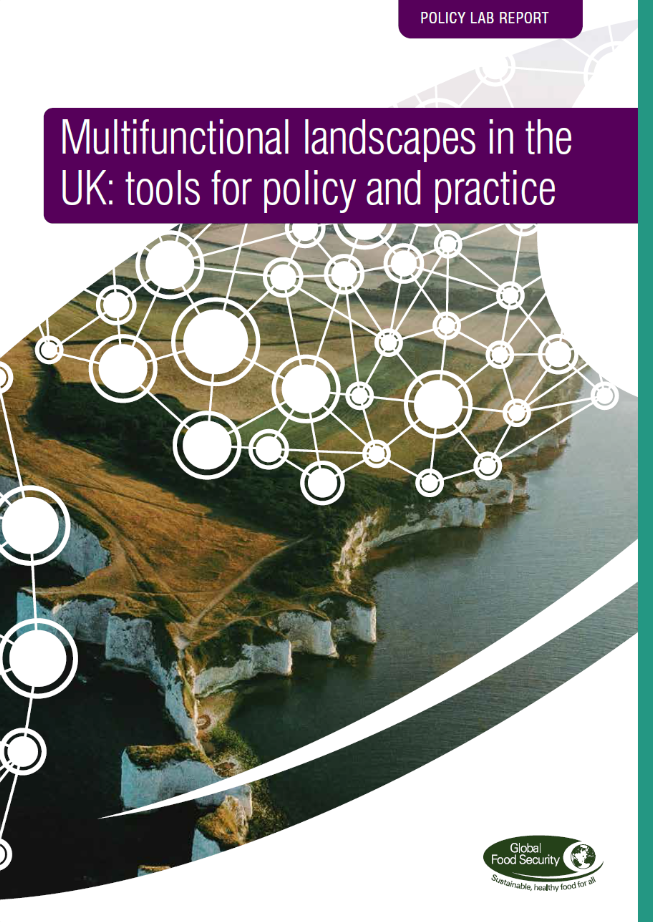The Global Food Security (GFS) programme has launched its latest policy lab report ‘Multifunctional landscapes in the UK: tools for policy and practice’, which explores how UK landscapes can be managed to deliver a range of ecosystem services including natural resource- and food provision. The report was written by the winners of the GFS policy lab on multifunctional landscapes (MFL) and synthesises the current state of knowledge to provide a set of recommendations that can be used to inform future UK land use policy.
This GFS report comes at a critical moment in history, as the COVID-19 pandemic reveals vulnerabilities in national and global food supply chains [1]. Furthermore, the UK leaving the European Union this year is likely to have profound impacts on UK agricultural policy and our wider food system [2]. An MFL approach presents opportunities to meet environmental targets alongside increasing national food security and food system resilience during this period of large-scale adjustment and uncertainty – but how can it be implemented in the UK?
The report addresses this question in three parts; part 1 explores the concept of the multifunctional landscape approach, part 2 identifies how this concept can be put into practice (including tools, strategies and case studies), and part 3 lists the four core principles of MFL management and indicators of success. These core principles relate to:
- Organisational structure and functioning
- Participatory approaches and stakeholder engagement
- External governance and initiatives
- Performance assessment
“Strengthening food security in the UK requires bringing everyone together to build a joint vision that goes beyond ‘business as usual’ and really delivers on sustainability and citizens’ health” said Principle Investigator of the report Dr Sofia Franco from the Scottish Association for Marine Science. “We urgently need to challenge the fragmented way in which we have approached landscape management in the past and shift current thinking towards a true food systems approach.”
The policy lab report was co-authored by Dr Sofia Franco (Scottish Association for Marine Science), Dr Ben Keane (University of Sheffield), Dr Alison Scott-Brown (Royal Botanical Gardens, Kew), Dr Rory O’Connor (University of Reading) and Dr Ruth Wade (University of Sheffield), and is available to download below.

Multifunctional landscapes in the UK: tools for policy and practice
This report explores how UK landscapes can be managed to deliver multiple services, ranging from food production and climate control to biodiversity and recreation. It synthesises the current state of knowledge on multifunctional landscapes in the UK and provides a set of recommendations that can be used to inform future UK agricultural policy.
This work was funded by the Global Food Security (GFS) programme as part of its Policy Lab, in which postdoctoral researchers compete to write a policy-facing report for the programme.
(You can view PDF documents by downloading a PDF reader. We recommend using Google Chrome or Mozilla Firefox web browsers.)
References
- https://www.bbc.co.uk/news/business-52020648
- http://researchbriefings.files.parliament.uk/documents/CBP-7974/CBP-7974.pdf
Notes to editors
Global Food Security (GFS) is a multi-agency programme, hosted by UK Research and Innovation, bringing together the main UK funders of research and training relating to food. GFS publications provide balanced analysis of food security issues on the basis of current evidence, for use by policy-makers and practitioners.


